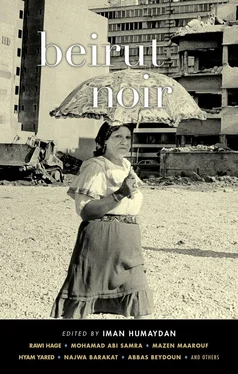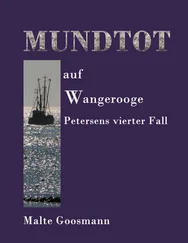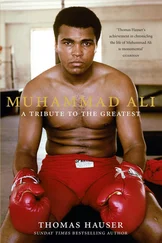He said, “You know that when I was first in Beirut, I belonged to the Pioneers of the Revolution. And as you know, this unit had a strong moral code. Before long, people in the organization started stealing cars. I acted against the rest of the group and refused to join in, but it was war. The rules just fell away of their own accord, without anyone noticing. The group’s harsh discipline helped in stealing cars. Murder was easy. Before we all became isolated, we organized together and we killed because of sectarian identity. Then sniping started on the other side and it soon moved to our side. Soldiers became proxies to do anything and everything. It was war and we had to win at any cost.
“One day, Commander Suleiman called us in. There were ten of us. He said they were sending us to train as snipers. We learned to target anything, any person who crossed through the little square box that we saw through the sights of our guns. I learned fast. No target escaped me. We went up to the roofs or top floors of buildings in Chiyah and we started sniping across in Ain al-Rummaneh. For me, it was fate that moved people into the little square box. I had no hand in it; I was simply working in the service of fate. You will ask me if I looked into the eyes of any of my victims. I will tell you that it’s not possible to see eyes in the sights. It’s a game of fate. So when someone fell on the first shot it meant that his time had run out and we couldn’t do anything for him because this was his fate. I don’t want to hide from you — I don’t feel any guilt. Those people who kill for sectarian identity listen to their victims’ pleas. We listened to nothing but our bullets and looked at nothing but what they hit. It’s sport, totally clean killing. I didn’t read the newspapers and didn’t want to know my victims’ names. I didn’t want to see their pictures. I’m not the one responsible. They’re the ones who walked into my sights, into the little square box. If someone took one step backward and was saved, that wasn’t my doing, it was because it was his fate. They used to talk about their victims; I never did. As soon as the event happened I washed my hands of it. I acted as if I didn’t do it. In the end I succeeded in convincing myself that it wasn’t me who did it. It’s an instant, and I’m not even totally convinced it happened.
“Once a man and his son walked by. I targeted them in my sights. Then I noticed that his son sort of resembled my daughter. I noticed that the man looked like me. Out there were two people who looked like my kid and me; I suddenly didn’t want to kill them. But they were inside the little square box. I wanted at least not to target the child. But fate intervened and the child fell. At that moment, I felt that I became my daughter. That I had targeted myself. I quickly ran downstairs from the top of the building to the street; people were still gathered around. I took another road. I fled. That time, I felt I was a coward. I fled from fate, from my fate. It was condemning me. When that coward emptied his gun into me, I immediately remembered the child falling down. It was as if my own shot had come back to hit me, as if it were ricocheting back at me from that place.”
A stormy morning froze Beirut. Adil Uliyyan didn’t stumble but rather fell flat onto the floor. He cried out but the thunder drowned his cries before they reached the family room where Rosette and Line were talking about the weather. Rosette noticed earlier the color draining from Adil’s face. When she went into his room to check on him, she found Adil on the ground, pinned against the bed, his mouth agape, unable to speak.
She tried to lift him into bed. But it was difficult for her to raise his body, and his unconscious state made him even heavier. She rang the bell for the third floor and two servants came down. They yelled when they saw Adil unconscious, which alerted Line, who then hurried into her father’s room. When she saw him on the ground, she froze for a moment. Then she shook herself out of it and took a step to her mother’s side. Her mother helped the two servants manage to finally get Adil into his bed. Everyone waited for the ambulance to come after Rosette phoned the Red Cross. Line’s brooding silence made her anxious.
The house was completely still, including the servants who went quiet too after noticing how calm the two women were. The ambulance arrived and Adil was moved onto the stretcher. Rosette went with him and Line followed in her own car.
Samir Uliyyan informed me that Adil had been moved to the hospital in Ras Beirut; he was also quick to inform me that Rosette had asked about me and that she wanted to see me. I had been intending to visit Adil in the hospital anyway, and so I visited the very next day.
As soon as Rosette and Line saw me they erupted into sobs. I must be the one remaining person who reminded them of Adil. I am the lone, distant comrade who could still be called a friend of his.
Adil never regained consciousness. He died on the seventh day, the day on which God rested. Rosette and Line left the southern suburbs.
A whole summer passed during which I heard nothing of Adil’s family. In October I received a package. When I opened it, I found a jumble of papers full of Adil’s creative ramblings, all pretentious analysis and philosophizing... his thoughts on writing. But a single paper with large handwritten words stopped me in my tracks: I am not evil. Everything I did, or claimed I did, was simply intended to be terrifying.
Originally written in Arabic.
Scent of a Woman, Scent of a City
by Alawiya Sobh
Khandaq al-Ghamiq
It was half past seven in the morning. I didn’t get out of bed, I didn’t hear the usual church bells across from my house in Hamra. Instead I woke up to the chimes of my mother’s voice saying, “The day’s almost over and you’re still sleeping. If I were the ministry, I wouldn’t pay you one cent. It’s seven thirty and you’re still lying around in bed.” My mother’s rosary of words continued until I got up.
My mother can tell the time without a clock. She lifts her finger to the sun to tell the time; I don’t know how she does this. And I don’t know how to use an alarm clock either. I’ve bought clocks many times, but they are soon destroyed or lost without me knowing why. My friend says that my relationship with time isn’t normal. I smiled when she said that and then asked her what time it was. She responded, but just as quickly I forgot what she’d said and so I asked her again. She smiled and patiently answered once more, but perhaps I didn’t hear. One of my bad habits is that I always ask questions but don’t bother listening to the answer. My mother asks and answers herself when she can’t find someone else to talk to. She told me that she’d listened to all the news reports while I was sleeping, and that a woman had been found dead in Khandaq al-Ghamiq.
I didn’t pay attention to what she said and tried to not care. Words like these weren’t strange to my ears.
I opened my eyes wide and I felt an intense swelling in them and all over my body. The exhaustion I felt was like the one you feel at the end of the day. My God, how will I feel by evening? Morning blends into evening, day into night.
I opened the window to cold shadows. The rain was heavy and the howling of storms reminded me that the earth was still turning.
Nature is there in the seasons, but winter grayness has a scent that rises from the street and enters the house, a scent like the one I smelled yesterday evening that’s remained suspended in my nose and on my body since. Before I entered the house and locked the door on another day and another world, I’d tried to walk down the street a bit to take in some air — but the air was not air.
Читать дальше












